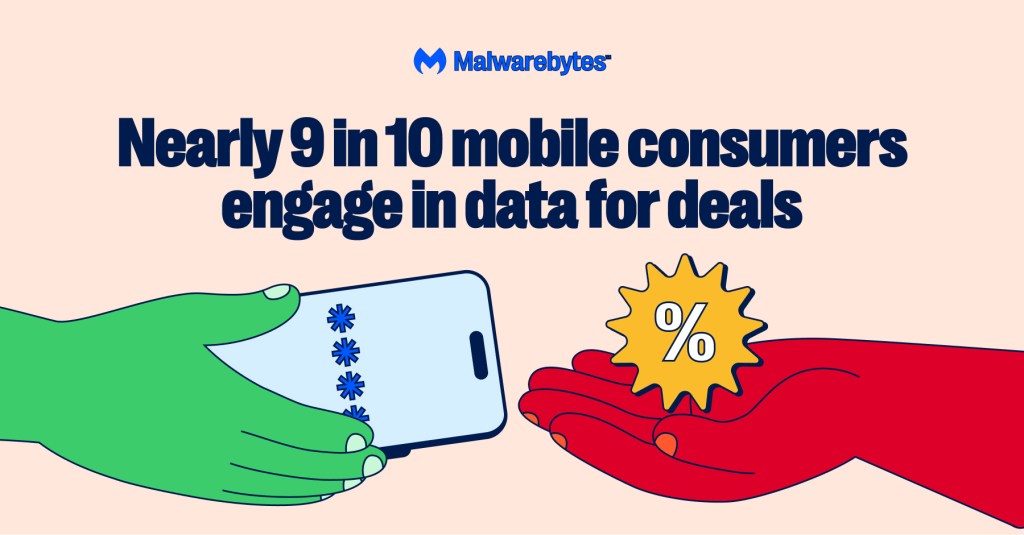
by Malwarebytes Labs
Every year, shoppers get faster, savvier, and more mobile. We compare prices on the go, download apps for coupons, and jump on deals before they disappear. But during deal-heavy periods like Black Friday, Cyber Monday, and the December shopping rush, convenience can work against us.
Quick check-outs, unknown websites, and ads promising unbeatable prices make shoppers easy targets.
Shopping scams can steal money or data, but they also steal peace of mind. Victims often describe a mix of frustration, embarrassment, and anger that lasts for a long time. And during the holidays when you’re already stretched thin, the financial and emotional fallout lands harder, spoiling plans, straining trust, and adding anxiety to what should be a joyful and restful time.
The data for deals exchange

During the holidays, deal-chasing behavior spikes. Nearly 9 in 10 mobile consumers hand over emails or phone numbers in the name of savings—often without realizing how much personal data they’re sharing.
- 79% sign up for promotional emails to get offers.
- 66% download an app for a coupon, discount, or free trial.
- 58% give their phone number for texts to get a deal.
This constant “data for deals” exchange normalizes risky habits that scammers can easily exploit through fake promotions and reward campaigns.
The Walmart gift card scam
You’ve probably seen it. A bright message claiming you’ve qualified for a $750 or $1,000 Walmart gift card. All you have to do is answer a few questions. It looks harmless enough. But once you click, you find yourself in a maze of surveys, redirects, and “partner offers.”

The scammers aren’t actually offering a free gift card. It’s a data-harvesting trap. Each form you fill out collects your name, email, phone number, ZIP code, and interests, all used to build a detailed profile that’s resold to advertisers or used for more scams down the line.
These so-called “holiday reward” scams pop up every year,…
Continue Reading